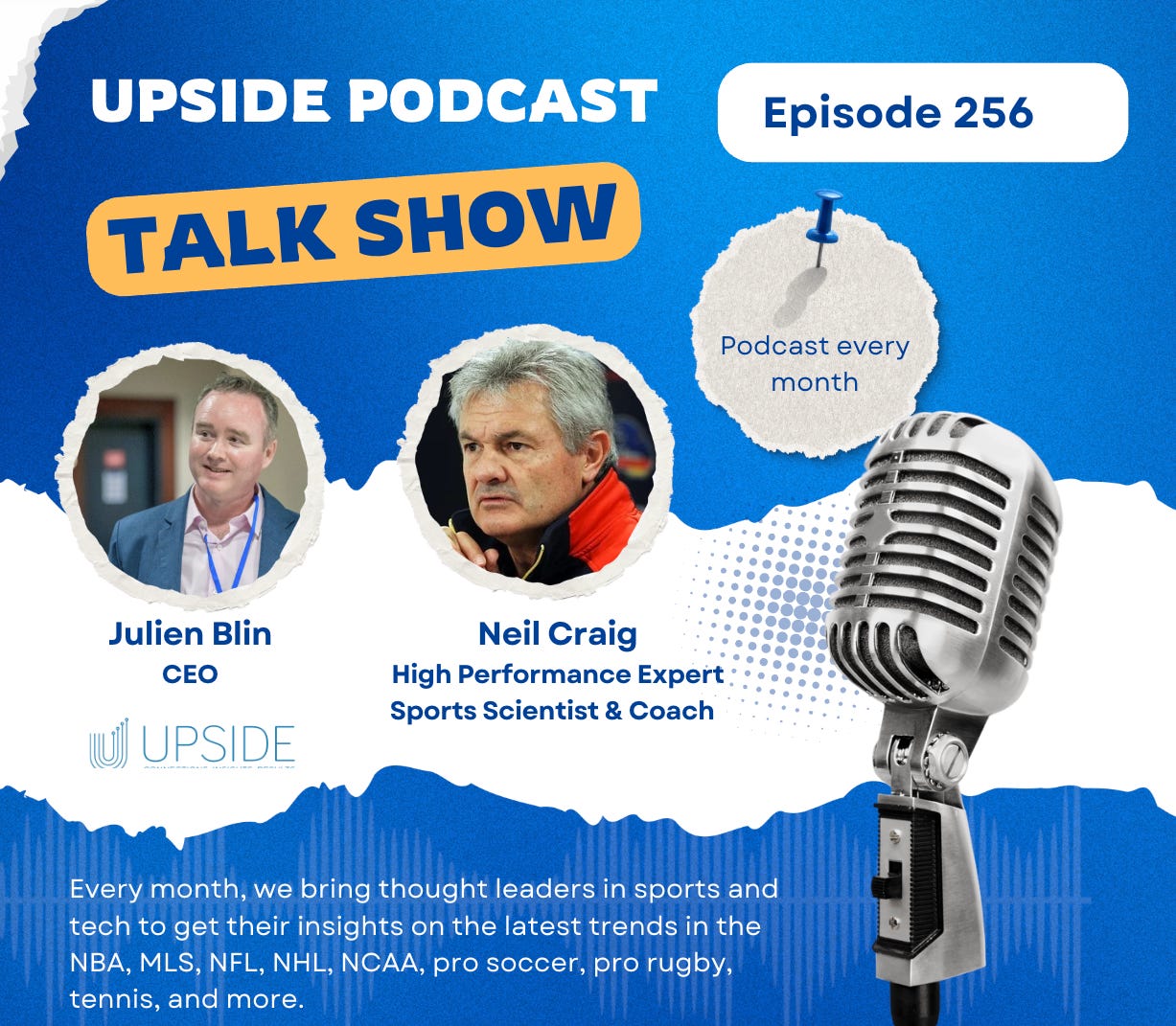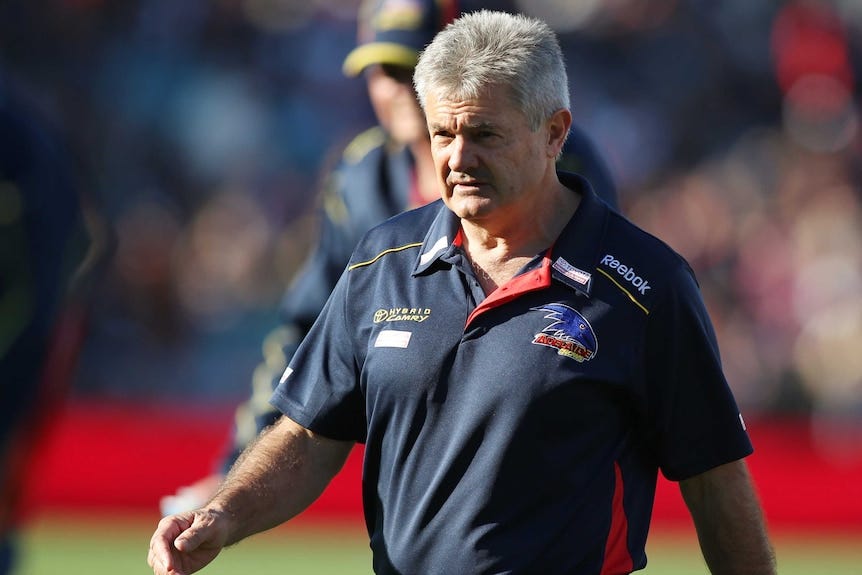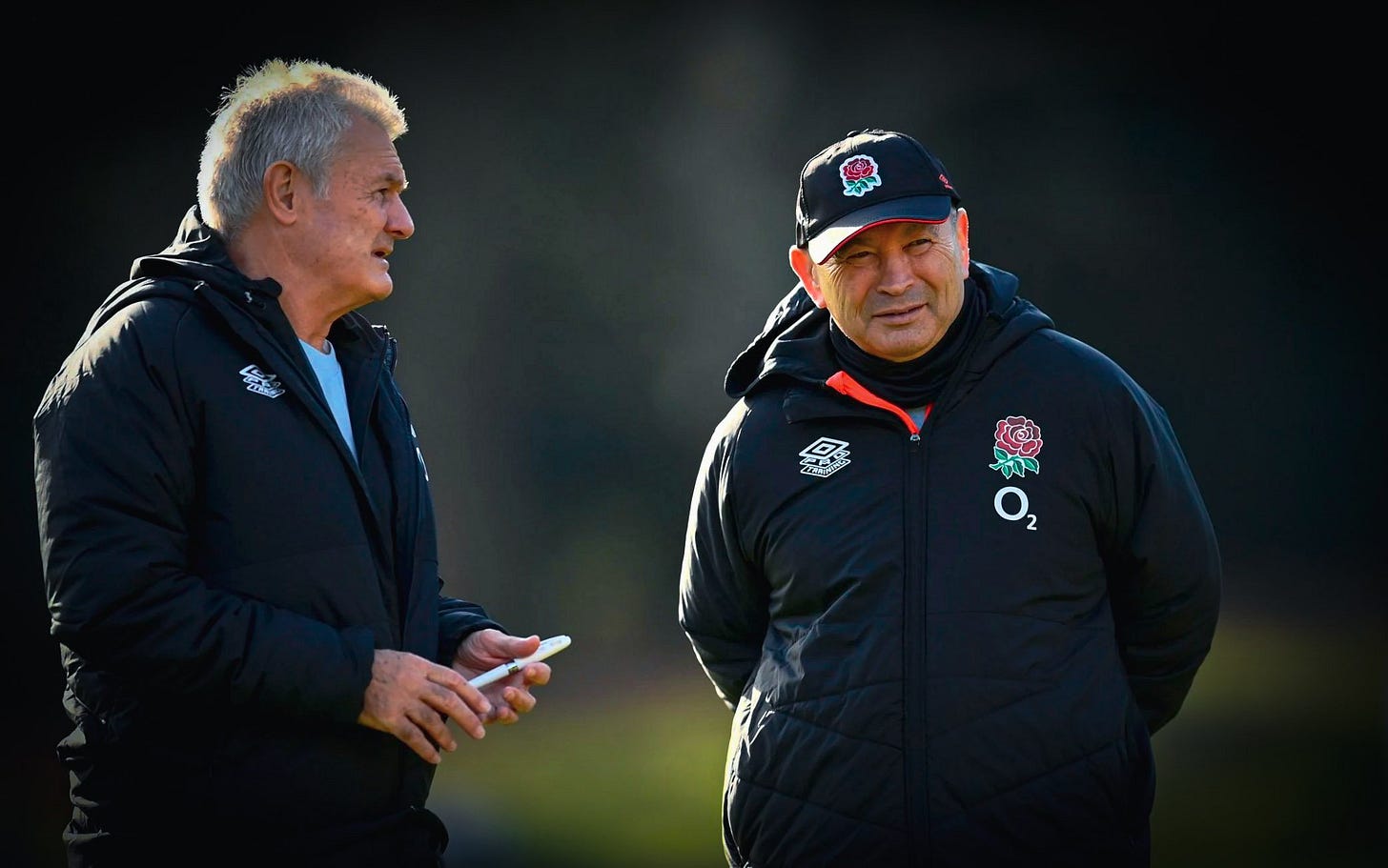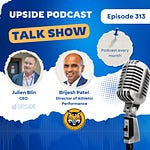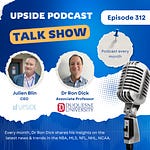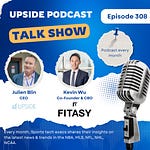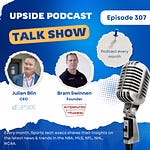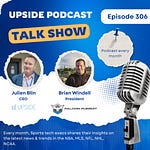Today we have the honor of interviewing Neil Craig, involved in high performance sports both as a sports scientists and coach and now coaching the coaches.
Neil Craig is an Australian Australian rules football coach and former player. He is best known as being coach of the Adelaide Football Club from 2004 to 2011. He also notably served as caretaker coach of the Melbourne Football Club in 2013. He played for the Norwood Football Club, Sturt Football Club and the North Adelaide Football Club in the South Australian National Football League (SANFL).
Picture: Neil Craig
He has worked as a fitness adviser, coach of the Adelaide Football Club, a caretaker coach of the Melbourne Football Club, head of performance at the Essendon Football Club, as well as director of coaching at the Carlton Football Club. From 2017 to 2022 he was high performance manager for the England rugby union team, working with head coach Eddie Jones.
Picture: Neil Craig (Left), Eddie Jones (Right)
You can watch the video interview below by clicking on the Youtube link. You can also listen to the audio interview by clicking on the link at the top of the page:
📝Show Notes: Through this interview, we touched on:
His background.
His most consistent 'North Star' or guiding principle in building high-performance environments.
The role and science behind being a 'critical friend' to head coaches.
Balancing data/sports science with the “human element”.
The evolution of leadership in elite sport—significant shifts and emerging trends.
One actionable piece of advice for aspiring coaches or leaders.
You can read the full transcript of the podcast interview with Neil located at the top of this blog post.
Here are the quotes from the interview with Neil:
Q1. Tell me about your background:
"My background is pretty insular—I’ve only ever really known high-performance sport. I played Australian football for about 17 or 18 years, back when the game wasn’t fully professional. While I was playing, I trained as a sports scientist and eventually got a job as a physiologist with the South Australian Sports Institute, working mainly with track cycling. That took me to world championships, World Cups, and Olympic Games for nearly 15 to 20 years. When I finished playing, I was invited to be a head coach at one of my old clubs, which was a steep learning curve—I made plenty of mistakes early on. From there, I became an assistant coach and then a head coach in the AFL as the league was turning fully professional. Since 2011, I’ve been involved in director of coaching roles at various AFL clubs, but in the last few years, I’ve focused more on working directly with head and assistant coaches—essentially coaching the coaches. The idea is that just as we expect athletes to continually improve, we should expect the same from our coaches, and that’s a concept that’s gaining momentum both in Australia and overseas."
Q2. Most consistent 'North Star' or guiding principle in building high-performance environments:
"I have a strong feeling that the best player or athlete development comes from strong coach development. I genuinely believe coaches have the biggest influence on performance, so we need to make sure we know what we’re doing. It’s not just about the athletes getting better every day—coaches need to be on that same journey of continual improvement. If we support and develop our coaches, that flows directly into the environment and the athletes’ performance. That’s really been my North Star throughout my career, no matter the sport or team."
Q3. The role and science behind being a 'critical friend' to head coaches:
"The role of a trusted, critical friend is essential. It’s someone who will tell you the truth, but for that to work, the head coach has to genuinely want that support—you can’t force it. The relationship has to be built on trust. I spent a long time working with Eddie Jones, and he trusted me to come into his environment and tell him what I saw and heard, even if he didn’t always agree. The job of head coach is massive now, with so much pressure—internal, external, media, supporters, and personal life. If I had my time again as a head coach, I’d definitely have a critical friend—someone to check the temperature of the environment and my own behavior, especially under stress. That’s when you really need honest feedback, because it’s easy to lose perspective. It’s not just about challenging feedback; sometimes it’s just listening or being a sounding board. Having someone to share the load can be incredibly therapeutic and helps you make better decisions."
Q4. Balancing data/sports science with the 'human element':
"As the head coach, you set the tone for the environment because of the power of your position, so you need to be clear about the environment you want to create. Ideally, it’s one where people thrive under pressure—not just the athletes, but also the support staff. That means people feel valued, feel like they’re improving, their opinions matter, they have some autonomy, and they’re learning life skills. The job is huge, and coaches are making so many decisions every day—about selection, training, managing up, travel, and more. With all the data and science available, it’s easy to get caught up in the numbers, but you can’t lose sight of the human side. The best environments are those where people feel safe to contribute, where there’s healthy conflict and debate, and where the leader values other people’s opinions. That’s how you get the best answers and create a culture where everyone is striving for improvement."
Q5. Evolution of leadership in elite sport—significant shifts and emerging trends:
"The best environments are those where the leader values other people's opinions and is only interested in getting the best answer, regardless of where it comes from. That requires leaders to put their ego in their back pocket. Too often, leaders feel they need to have all the answers, but nobody does. The healthiest environments are where there’s debate, discussion, and rigor—everyone feels comfortable putting their opinion on the table, knowing that at the end of the day, someone will make the final call. If I walk into a meeting and everyone just agrees, my antenna goes up—that’s not a safe environment. The best leaders have a clear philosophy and value system that guides their decisions, and they’re willing to confront issues early and encourage others to speak up. That’s what drives sustained success and resilience in teams."
Q6. One actionable piece of advice for aspiring coaches or leaders:
"Leadership is a skill, and as soon as you influence someone, you’re leading—hopefully in a positive way. If everything was black and white, we wouldn’t need leaders, but it rarely is. Another quote that resonates with me is, 'You haven’t really led until you wake up two or three mornings in a row and, as soon as you open your eyes, you say, "Oh, fuck."' That’s the reality of leadership—sometimes you’re faced with tough decisions and uncertainty. The more you can practice leadership, the better you get. My advice is to really think about what you would do in a range of different situations and why. That process will help you develop your values and philosophy, which you’ll need as a leader. Otherwise, you’ll just be all over the place. Think about your philosophy on recruitment, learning environments, empowerment, alignment, and wellbeing. The more you think these things through, the better prepared you’ll be to lead."
You may also like:


